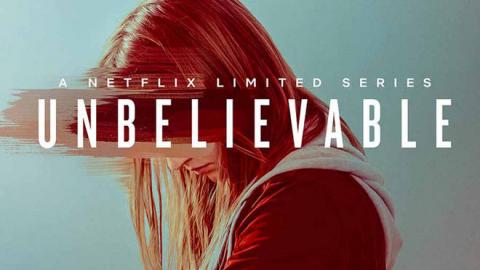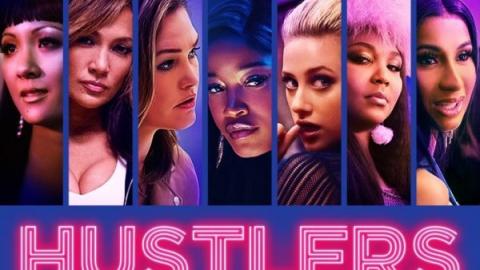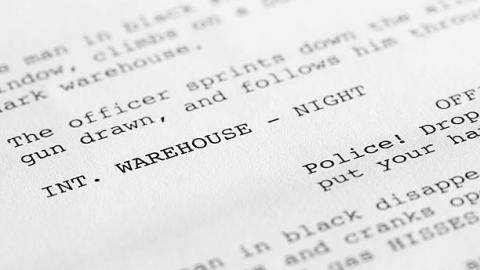Why Do Laugh Tracks Feel So Corny?
Share with friends

The gap between smart content and dumb content is a gyre that's widened into an ocean...
Yesterday, Netflix released a trailer for a new sitcom called The Ranch, starring Ashton Kutcher, Sam Elliot, and Elisha Cuthbert (see it below). As you can see (rather hear), the show has a laugh track. The staging is, as Vulture called it, strangely "CBS-like." This already feels weird for Netflix, but the canned laughter is just painful. The show looks like an unaware parody of itself.
Viewers' negative reaction was immediate. These comments, just a selection of many like them, were the highest ranked on the reddit thread where the trailer was released:
[–]comrade_leviathan [+1]: Why the hell do we need a laugh track? Was it part of Kutcher's contract or something?
[–]balexander24 [+1]: I came here to say the same thing actually. I was really interested in giving this show a chance, but some how I find the laugh track extremely off putting...
[–]DougCL [+1]: this feels like a fake tv show that characters in another tv show or movie would be watching.
[–]Handsome3k [+1]: This looks terrible (laugh track goes off)
This is not the first Netflix show with a laugh track. The horribly reviewed Fuller House also has one. Despite its deathly reviews (it was described by the New York Times as: "a self-conscious, dated and maudlin reminder of the ceaseless march of time and your inevitable demise.") Fuller House was shockingly renewed for a second season. Not so shockingly, I suppose, considering that the equally critically reviled Adam Sandler vehicle Ridiculous 6 broke the Netflix record for first month views.
These facts raise two questions. First, why does the laugh track feel so icky? Second, why would Netflix implement it?
Why does it feel so corny?
The creation story of the laugh track goes as follows, as recounted by a producer on the Bing Crosby show where it was first used:
"The hillbilly comic Bob Burns was on the show one time, and threw a few of his then-extremely racy and off-color folksy farm stories into the show. We recorded it live, and they all got enormous laughs, which just went on and on, but we couldn't use the jokes. Today those stories would seem tame by comparison, but things were different in radio then, so scriptwriter Bill Morrow asked us to save the laughs. A couple of weeks later he had a show that wasn't very funny, and he insisted that we put in the salvaged laughs. Thus the laugh-track was born."
In the 1950s, a sound engineer named Charles Douglass began using the laugh track on his TV shows, because his live audiences couldn't be trusted to laugh at the right times or the right intensity. The laugh track allowed the producers to tell the viewers at home not just when to laugh, but how much. It was media manipulation 101.
However, as entertainment became increasingly reality-philic, this kind of manipulation tended to make audiences sick to their stomachs. Take, for example, both of Larry David's masterpieces. Seinfeld, in the 90s, had a laugh track while Curb Your Enthusiasm, in the 2000s, did not. David was smart enough to know where things were heading. Most contemporary comedies, particularly the "smart," ahead-of-the-curve ones like Curb, Arrested Development, Modern Family, Community and 30 Rock eschew laugh tracks. The laugh track has become, as Indiewire put it, a "symbol of an unsophisticated show," something that caters to an audience feeble minded enough to let themselves be told when to laugh, and how hard. It has been employed for seventy years, and, like the stereoscope, its effectiveness has all but worn off. This combined with the fact that Netflix shows are usually some of the most artistically progressive around, explains why The Ranch's laugh track is so painful to listen to.
Which brings us to the next question...
Why would Netflix use a laugh track?
The short answer is simple. Netflix uses laugh tracks because, despite everything I said above, it still works. The inexplicable success of Fuller House and Ridiculous Six prove what critics can't bring themselves to face. The gap between smart content and dumb content is a gyre that's widened into an ocean. As "smart" writer-people, the taste of critics reflects, increasingly, only one part of the viewing public, leaving the "dumb" part unrepresented. Critics may have separated from that part, but that doesn't mean they've disappeared. They still have the numbers to sway programming decisions.
It would be ridiculous, of course, to compare the success of Fuller House to the rise of Donald Trump, but that's exactly what bloggers are doing. iwatchstuff said of it, "As is perhaps unsurprising for a society in which Donald Trump is a presidential frontrunner, another loud, catchphrase-spouting relic of the '80s is apparently finding appalling success with American audiences."
A commenter on TV.com echoed the sentiment:
wind_shadow: What other signs of the apocalypse can I think of? Donald Trump might be the next President of the United States. As far as signs of the apocalypse go, I think that fact trumps (pun intended!) Fuller House getting a second season.
It would appear that the media is equally as baffled by the success of regressive sitcoms as they are about the popularity of Trump's regressive attitudes. Both seem rooted in the fact that a large segment of the population, a "dumb" one, for lack of a better word, has been seemingly forgotten by the media.
But what if the "smart"/"dumb" dichotomy is the wrong reading? What if the watchers of mainstream-media pariahs like Fuller House and The Ridiculous Six are actually a step ahead of the reviewers, not ten steps behind? If you buy this theory, The Ranch's appeal could derive from audiences tired of having "smart" people tell them what they're supposed to like. Could they be embracing "dumb" comedy tropes, like the laugh track, in rebellious celebration? That would certainly explain Blue Mountain State.
Ok, you're probably rolling your eyes right now and I don't blame you. This is admittedly reading way too far into it. It's unlikely that fans of The Ranch or Fuller House are thinking too deeply about why they like these shows. Even if they did, the reality would probably be nothing more complicated than "because they make me laugh."
Regardless, the strange success of these shows, and their symbolically regressive laugh tracks, show that "smart" might not be so "smart" after all.




